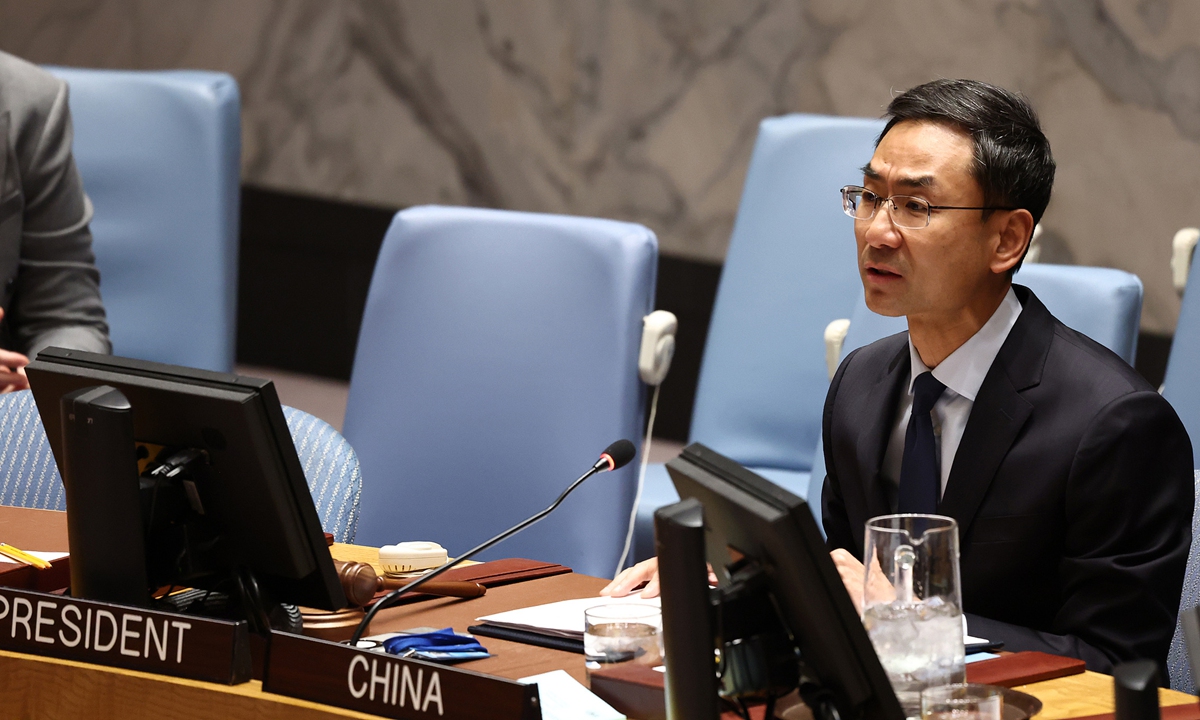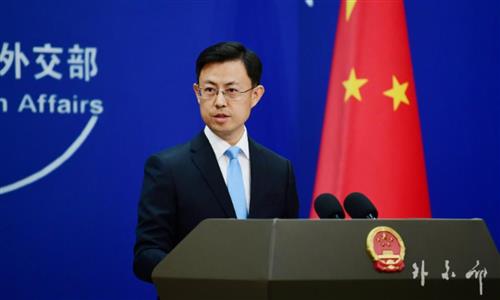China slams US for denying visas to diplomats from certain countries as a violation of international law obligations

Photo: VCG
A Chinese envoy criticized the US on Friday frequently denying visas and restricting the freedom of movement of diplomats from certain countries, which seriously affects their normal and effective participation in the work of the UN. Such actions violate diplomatic protocol, obligations under international law and basic humanitarian principles.
The right to obtain visas and enjoy freedom of movement is an inherent right of diplomatic personnel of all countries' Permanent Missions to the UN. Safeguarding this right is an international obligation that the US, as the host country of the UN, must fulfill. It is also a legal commitment the US made by signing the Headquarters Agreement. This should not be an issue, Geng Shuang, China's deputy permanent representative to the UN, told at a meeting of the Committee on Relations with the Host Country.
As the host country of the UN, the US bears the trust and expectations of the international community and should perform its duties responsibly, providing services impartially for all countries to participate in UN meetings, Geng noted.
Yet the US, driven by selfish interests, has repeatedly imposed restrictions and created obstacles on visa issuance and freedom of movement targeting certain countries. This disregard for the fundamental rights of diplomatic personnel is disrespectful to foreign diplomats and wholly inconsistent with the proper "hospitality" that a host country should uphold, Geng said.
Visa issuance and freedom of movement are rights of diplomatic personnel explicitly protected under the Vienna Convention on Diplomatic Relations and the Headquarters Agreement, Geng noted.
Granting visas to individuals participating in UN meetings is a legal obligation of the US as the host country. In this regard, the US has no discretionary power and must not apply discriminatory practices based on the state of bilateral relations, Geng said.
The US has treated its legal obligations as a mere scrap of paper, which is a clear violation of the international legal principle that treaties must be observed, the Chinese diplomat said.
On this issue, the US has no discretionary authority and should not adopt discriminatory practices against specific countries based on the state of bilateral relations. By treating its legal obligations with contempt, the US is in breach of the international law principle that treaties must be observed.
The actions of the US violate basic humanitarianism. The country has ignored the normal and basic needs of diplomatic personnel and their families in areas such as healthcare and education, arbitrarily applying discriminatory measures and roughly restricting their freedom of movement and access to medical treatment, Geng noted.
It has refused to issue visas in a timely manner and, in some recent cases, even resorted to coercion against foreign diplomats. Such conduct seriously infringes on the safety, dignity, and freedom of diplomatic personnel and goes against the fundamental principles of humanitarianism, Geng said.
The US' abuse of its status as host country, its disregard for international legal obligations, and its infringement on the legitimate rights of foreign diplomats are not new. These practices have occurred in the past, have continued in recent years, and have grown increasingly egregious. They run counter to the spirit of multilateralism, disrupt the normal functioning of the UN, and reveal a hegemonic and bullying mindset—putting "America First" above international rules, marked by arrogance and coercion, Geng said.
China, like many countries present at the UN meeting, has long suffered from various unreasonable restrictions imposed by the US. We urge the US to immediately change course and stop obstructing member states' participation in UN work based on bilateral relations or political considerations, Geng noted.
The Chinese envoy call on the US to strictly comply with the principles and spirit of the Vienna Convention on Diplomatic Relations, the Convention on the Privileges and Immunities of the United Nations, and the Headquarters Agreement, urging the US to earnestly fulfill its obligations as host country, heed the legitimate concerns of Member States, and genuinely safeguard the security, dignity, and ability of all Permanent Missions and their personnel to perform their duties.

